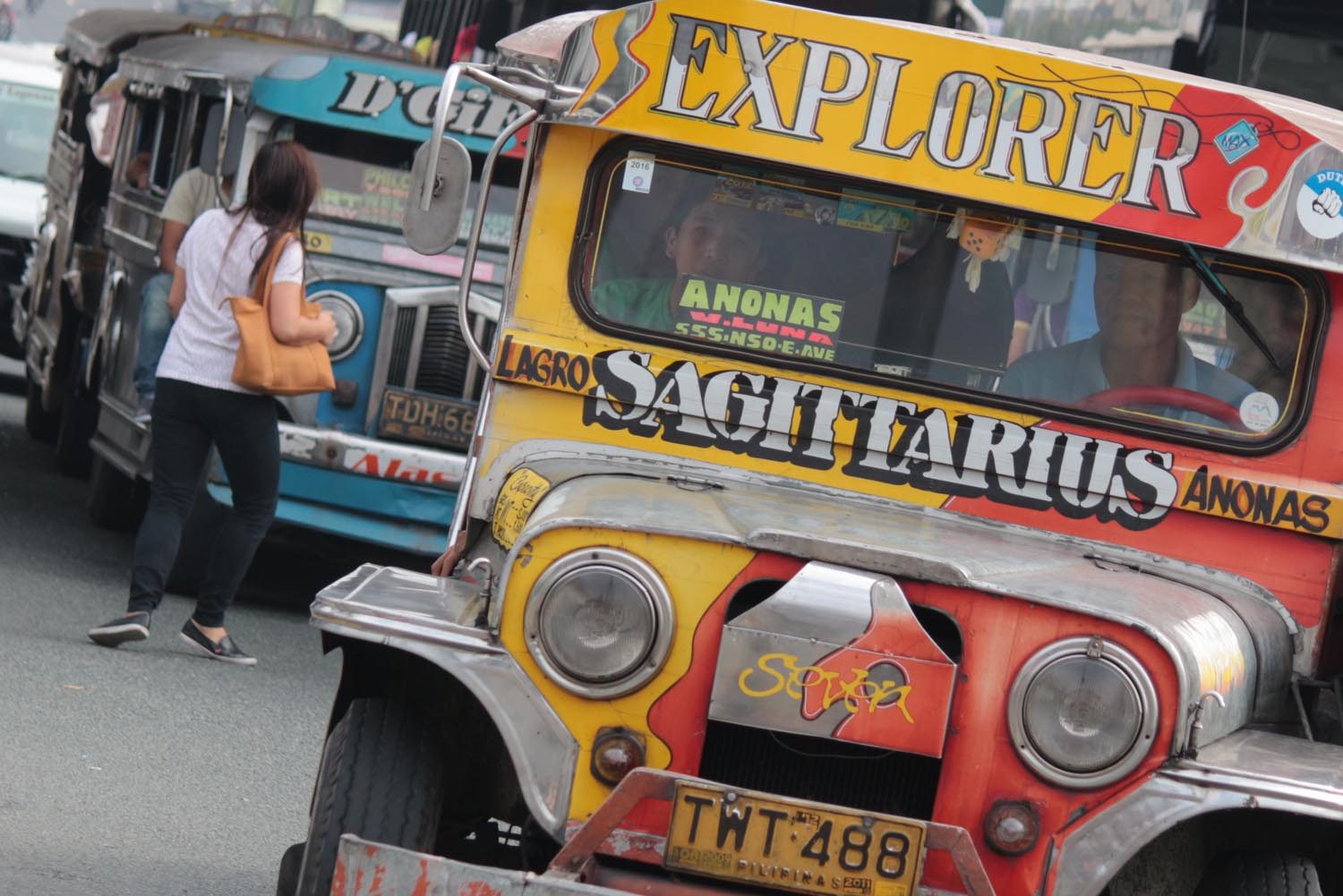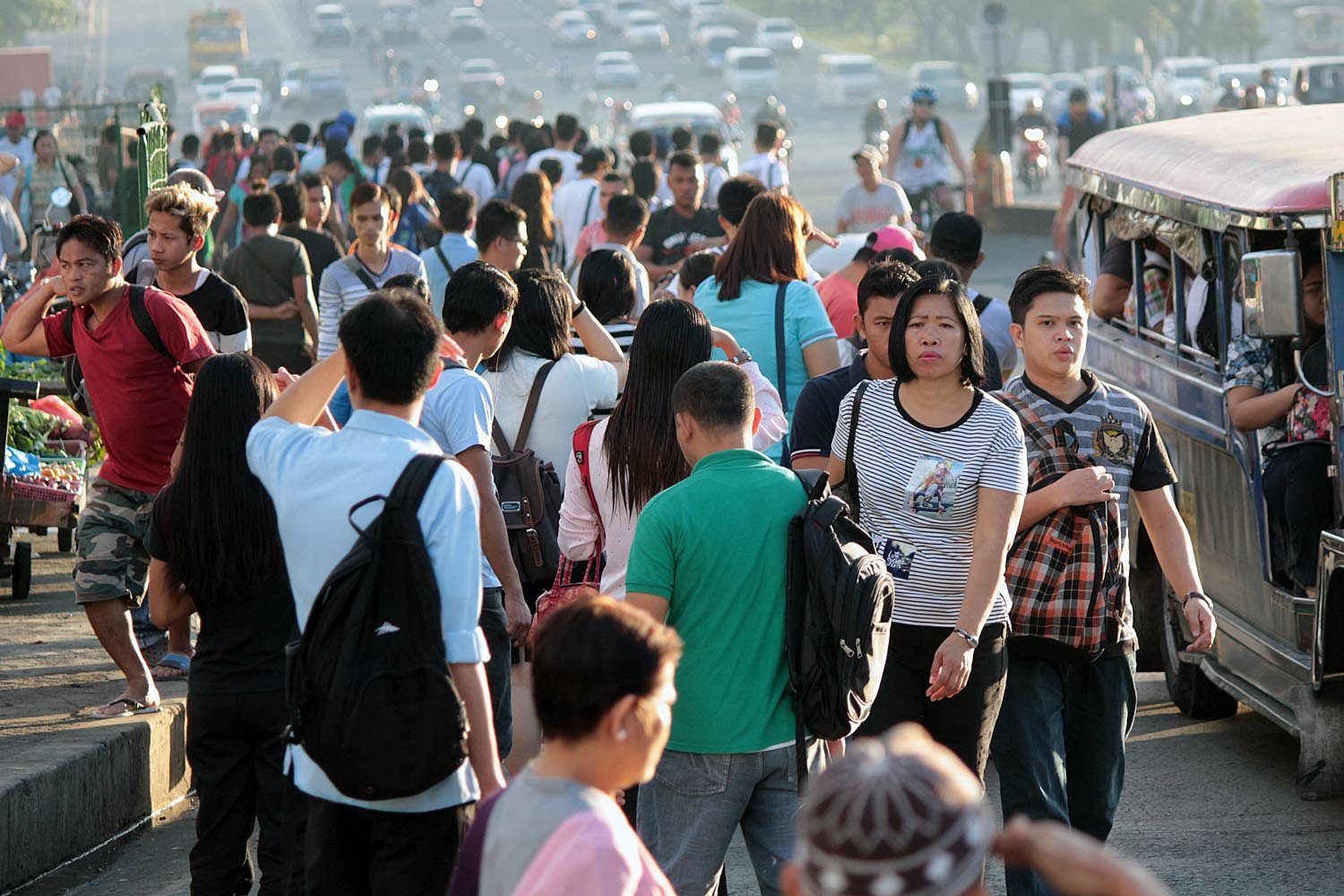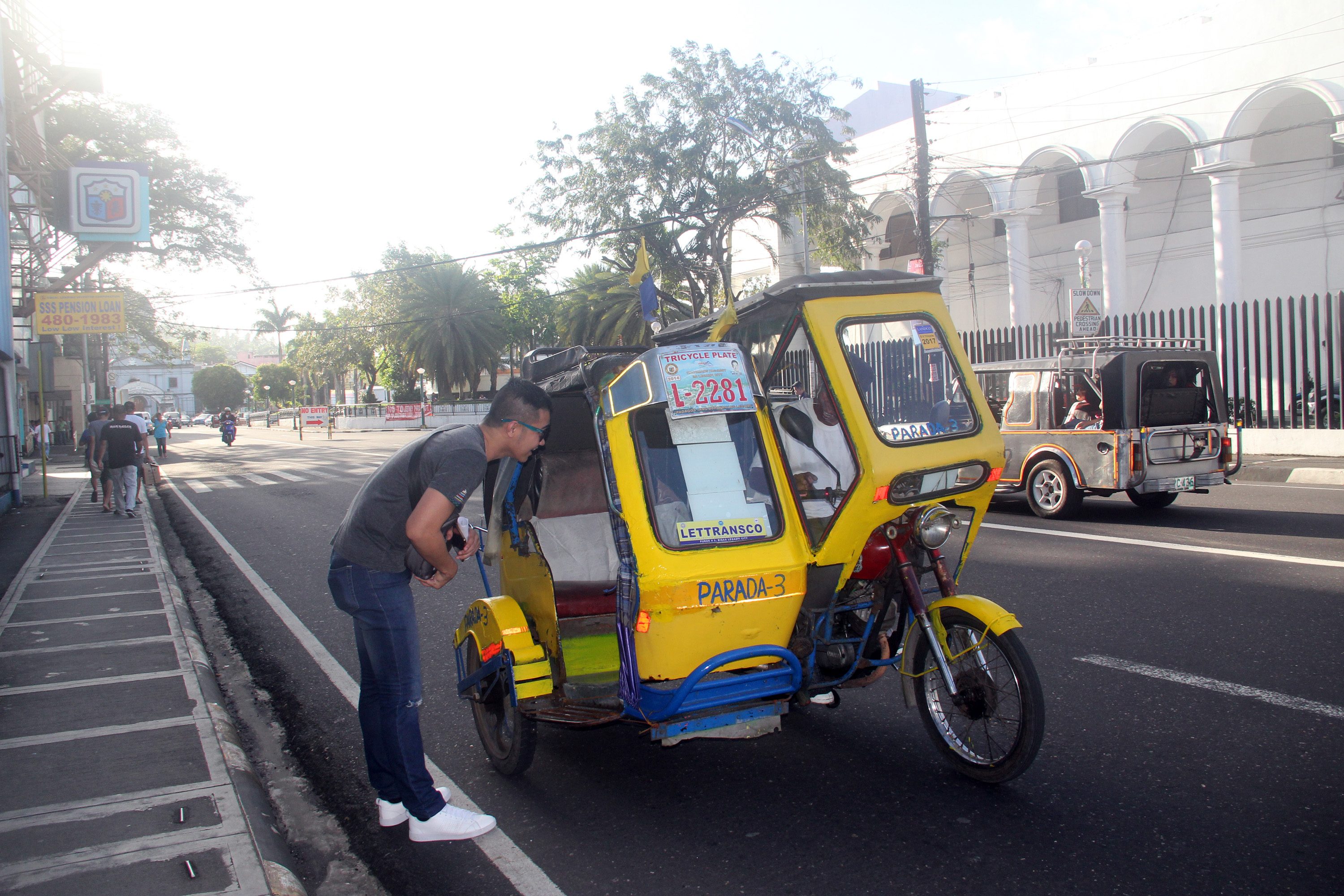SUMMARY
This is AI generated summarization, which may have errors. For context, always refer to the full article.

MANILA, Philippines – Jeepney drivers and operators in Metro Manila and key cities across the country halted their operations on Monday, February 27, to protest government proposals to phase out old public utility vehicles (PUVs), especially jeepneys.
Modernizing the Philippines’ mass transit system should not necessarily entail getting public utility jeepneys (PUJ) off the streets, they said.
Senate Bill 1284 and House Bill 4334, seeking to modernize the transport sector, are pending.
The protest rally was spearheaded by the Pinagkaisang Samahan ng Tsuper at Operator Nationwide (Piston) and affected travel for commuters.
In the Bicol region – specifically in the provinces of Albay, Camarines Sur, and Camarines Norte – members of the Concerned Drivers and Operators (Condor-Piston) said 95% of local transport operators participated.
They said 100% of local jeepneys and UV Express drivers joined the strike. Condor-PISTON, they said, has 12,000 members.
Ramos Rescovilla of Daraga town said about 3,500 jeepneys halted operations in the region. “Our regionwide transport strike is completely successful with 3,500 unit of jeepneys and 12,000 strong members halted from operations,” he said.
The Philippine National Police in Bicol went on full alert. They set up police assistance centers in the region to assist stranded commuters and prevent untoward incidents during the strike.
Albay Governor Al Francis Bichara also deployed engineering trucks to ferry stranded passengers from the first District (Tiwi), 3rd district (Polangui), and Daraga-Legazpi routes.

‘Attack on poor drivers’
Francisco Pagayaman, chairman of the urban poor group Kadamay in Northern Mindanao, said the planned disposal of outmoded PUJs would deprive drivers and operators of their livelihood.
“It is an attack on the poor drivers and operators? while the capitalists will benefit from it. The P7 million franchising fee is practically not affordable,” Pagayaman said.
Anakbayan commended jeepney drivers and operators “for their strike that brings back to national consciousness the issue of public mass transport.”
It added, “Piston and other participants in today’s strike deserve our full support for showing the intellectual and moral bankruptcy of the Department of Transportation as the agency in charge of public mass transport.”
Anakbayan continued, “This is an agency that is quick to police the ranks of jeepney drivers, but is quiet about Uber and Grab surges, accidents involving big bus fleets, abuses by airlines, malpractices by big taxi operations, and outright deception by MRT and LRT consortia.”

The Kabataan group, for its part, said that they are not against modernization, but corporations, and not the drivers and operators, stand to benefit from it.
“The drivers have been suffering every time there is an increase in fuel prices due to the Oil Deregulation policy of the government. This jeepney phaseout will be a massacre for them,” said Vennel Chenfoo of Kabataan.
Chenfoo also said once corporations take control of public transportation, it will burden the ordinary people.
In a separate statement, the League of Filipino Students echoed the call to put forward national industrialization in the country. It urged the government to support the small and individual jeepney drivers and operators by providing assistance instead of putting them in a commercialized scheme. – with reports from Rhaydz Barcia and Bobby Lagsa/Rappler.com
Add a comment
How does this make you feel?





























There are no comments yet. Add your comment to start the conversation.